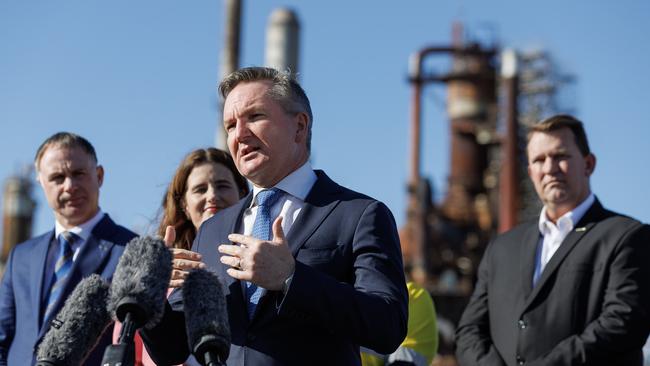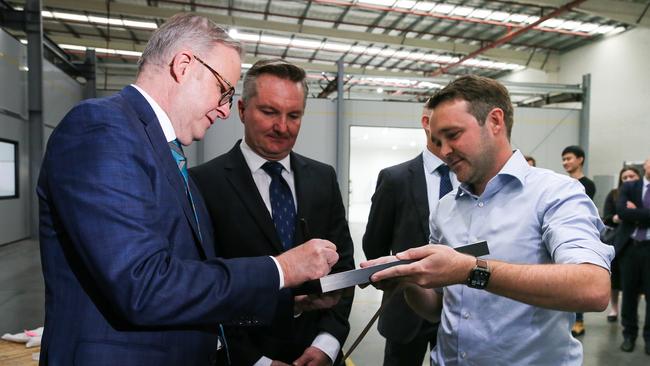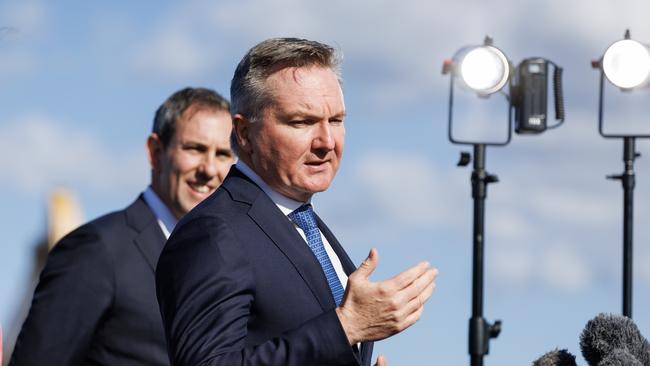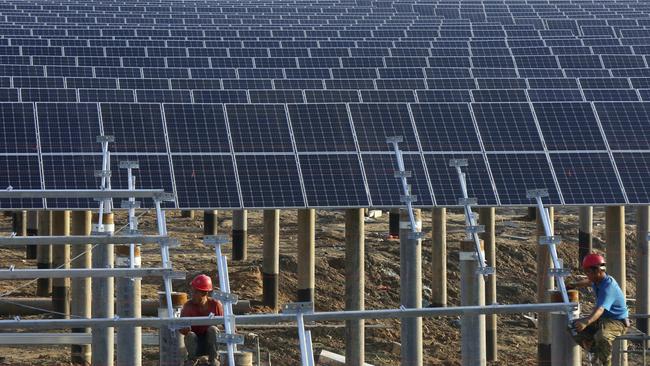
The government and the project backers discovered the enormous costs in challenging China in the areas where it dominates the market and slashes prices to keep others out.
Given the base facts were known six months ago, the speed of the reversal of the decision to make solar panels in Australia has shocked those who believed that the “Made in Australia” plan could be based on climate investing.
Already, BHP has mothballed its nickel plans because the nickel market is being flooded with low-cost Indonesian nickel funded by the Chinese.
China has vowed to increase investment in manufacturing products such as solar panels, batteries and electric cars, despite the losses because of low prices.
If Donald Trump is elected US president, he will take on China and use tariffs to thwart the Chinese.
What Kamala Harris will do if she wins is not clear.
As I will describe below, China is also set to make the “Made in Australia” investment in rare earths costly and has announced a big increase in Chinese-funded rare earths production.
“Made in Australia” is also in trouble on another front.

As I explained on Wednesday, the nation is set for a substantial fall in manufacturing as the Victorian government starves manufacturers of assured gas (by stopping gas developments) and imposing high taxes. The commonwealth is also harming manufacturing through its industrial relations legislation.
Victorian Premier Jacinta Allan has been fully briefed on the effects of what she is doing but has other priorities. The Albanese government decision to direct its controversial $1bn Solar Sunshot incentives program towards taking solar panel technology group SunDrive into panel manufacturing was risky, given what is happening in the global solar market.
The announcement was made by Albanese, Industry Minister Ed Husic and Energy Minister Chris Bowen, but it was Bowen who set out the strategy most clearly.
“A lot of people ask me why don’t we make more solar panels in Australia, and we should,” he said. “And so Solar Sunshot will support making solar panels and solar cells in Australia, and as a result, a great Australian company called Sun Drive, that makes the most efficient solar panels in the world, have now said they will move to open a new factory on the site of the old Liddell power station in Muswellbrook and that new factory will employ more people than used to be employed at the Liddell power station.
“So there is a lot more to do, but we are going to bring back solar panel manufacturing to Australia and Solar Sunshot is going to be the policy that gets it done for us”, Bowen declared.

The announcement surprised the solar panel world because of the strong group backing SunDrive, including Atlassian founder Mike Cannon-Brookes, venture capital groups Blackbird and Main Sequence, Canva founder Cameron Adams, former PM Malcolm Turnbull and Tesla chair Robyn Denholm, plus the federal government-backed Australian Renewable Energy Agency and Clean Energy Finance Corporation.
SunDrive this week announced a “strategic review” to focus on developing technology to transform panel manufacture rather than producing the physical panels.
Significant retrenchments took place as a result of the reversal. It was a sensible decision, and I suspect the wiser heads among the shareholders prevailed.
In rare earths, China is planning to maintain its domination of supply and treatment by expanding in Africa in association with Australia’s Peak Rare Earths company.
China’s Shenghe group has acquired half of Peak Rare Earth’s $US300m Tanzania project, and China effectively finances the project. The Chinese cover most or all of Peak Rare Earth’s capital outlays.

This year, the Chinese have stepped up production of rare earths and the prices have plunged, sending many rare earth company shares lower and making it difficult for new developments – exactly what the Chinese are aiming to do.
The Australian government’s investment in rare earths will face similar hazards to those it encountered in solar panels, but in rare earths we are clearly supported by the US, which is determined to be independent of the Chinese.
The economics of each project only makes sense if the US and/or other buyers are prepared to pay above the market for the materials they require to ensure independence from the Chinese.
In just the same way, the solar panel manufacturing plunge only made sense if buyers were prepared to pay above the market for the SunDrive solar panel technology, which was unique.
It produced better panels than those made by the Chinese.
But once again, buyers must be prepared to pay for the better technology to justify the manufacturing investment.






It took less than six months for the Albanese government and some of Australia’s biggest climate investors to change their mind on a solar panel manufacturing plunge.